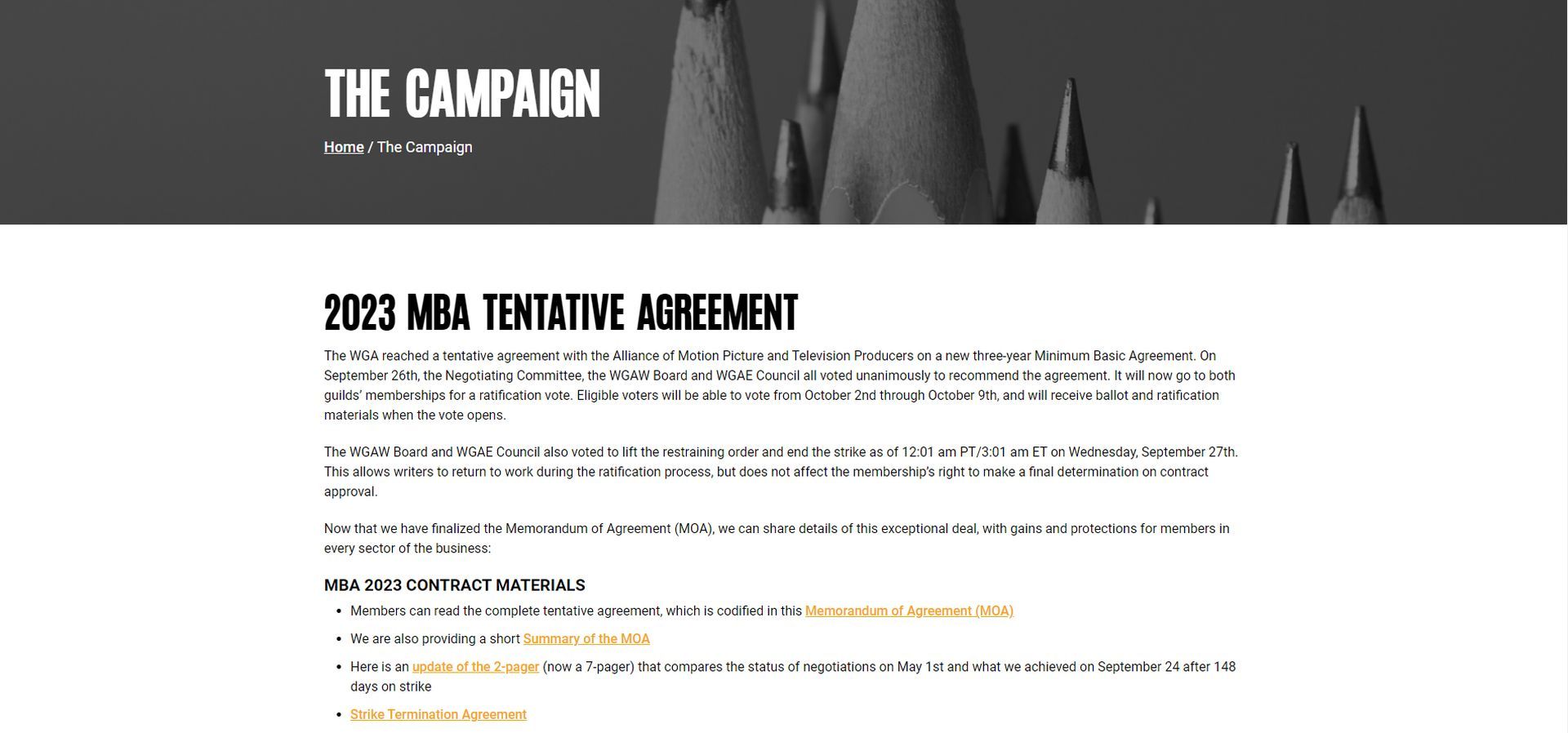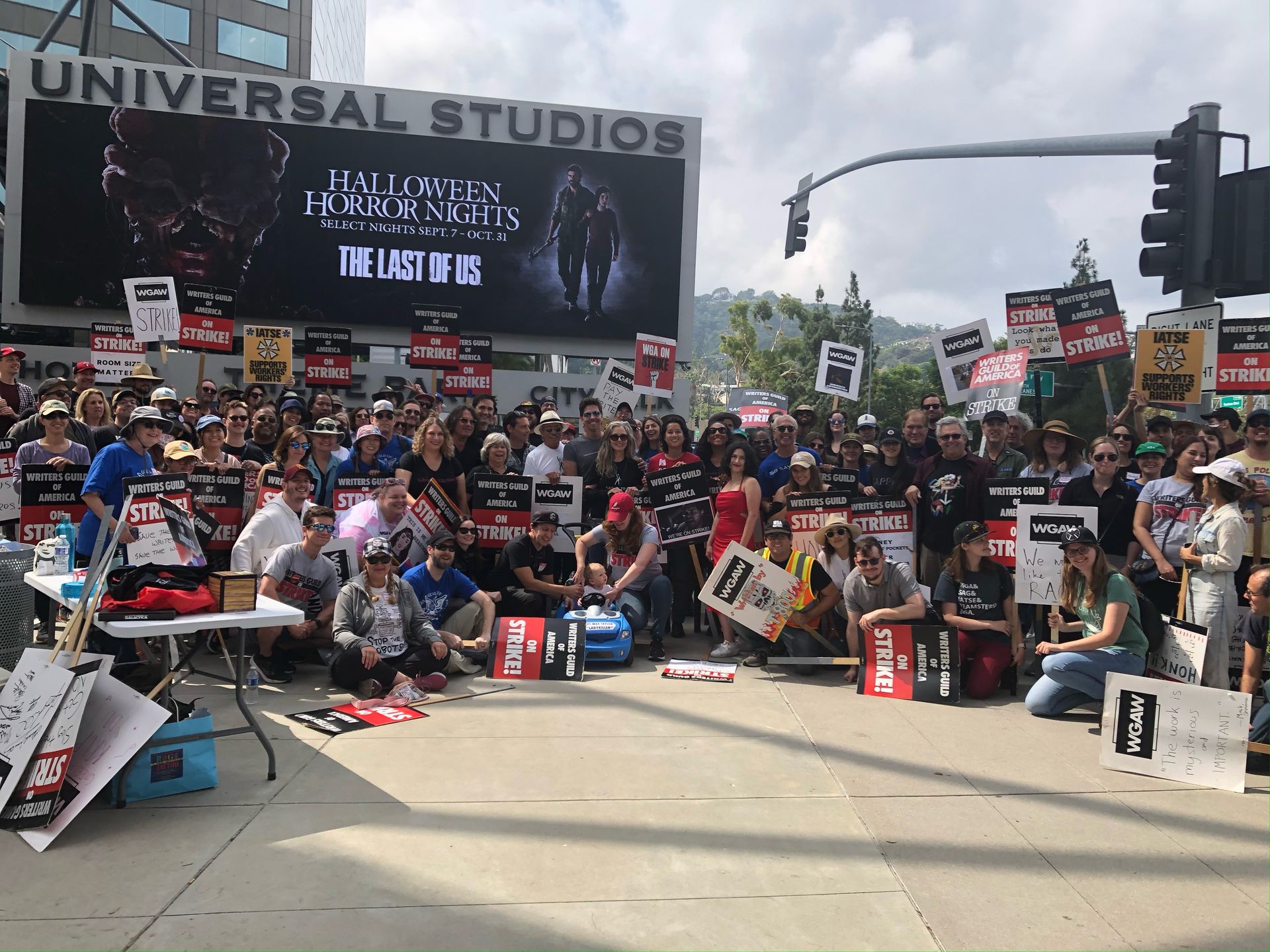After nearly five months of negotiations, the Writers Guild of America (WGA) strike is finally drawing to a close with the Writers Strike deal details beginning to finalize, marking a triumph for the guild and its members.
The guild leaders have greenlit a tentative deal that promises substantial gains for its members, signifying a crucial turning point not only for the entertainment industry but also for the broader labor movement. Let’s delve into the Writers Strike deal details, but first, take a look at the Writers Guild of America West’s official statement announcing the strike’s end.
congratulations!!
— Elijah Wood (@elijahwood) September 27, 2023
Key points of the Writers Strike deal details
The strike, which commenced on a brisk winter day, brought the entertainment industry to a halt. Writers rallied for fair compensation, especially in a landscape dominated by streaming platforms and digital media.
The picket lines and unwavering solidarity among guild members exemplified their resolute determination.

Fair compensation
The heart of the strike lay in the demand for fair compensation. In a landscape dominated by streaming platforms and the pervasive influence of digital media, writers rallied for their rightful share. The tentative agreement addresses this concern head-on by not only acknowledging the intrinsic value of their craft but also by securing higher pay rates for a multitude of writing services. This isn’t just a victory for writers; it’s a win for recognizing the essential role they play in the entertainment industry’s ecosystem.
Residuals in the streaming era
As the entertainment landscape evolves, the explosive growth of streaming platforms necessitated a reevaluation of residuals. This was a pivotal point of negotiation. The resulting deal ensures that writers will not be left behind in this digital revolution. It guarantees that they will receive their equitable share of residuals from the burgeoning world of streaming content. This provision lays a foundation for a more equitable distribution of profits, affirming that writers’ contributions are not only valued but also duly rewarded.
Healthcare and benefits
Beyond the realm of compensation, the strike raised a chorus of voices concerning healthcare and benefits for guild members. The tentative agreement addresses this critical aspect, recognizing that the well-being of writers and their families is paramount. With improved provisions in these areas, the agreement provides a safety net, offering much-needed support and assurance. It signifies a commitment to the overall welfare of those who dedicate their creativity and talent to the industry.
Job security
In an industry marked by uncertainty, job security emerged as a resonant concern. The new deal introduces provisions crafted to shield writers from arbitrary terminations and to infuse a greater degree of transparency into hiring practices. This isn’t just about safeguarding livelihoods; it’s about affording writers the confidence and stability they need to continue producing stories. It’s a significant step towards creating an environment where writers can thrive.

What’s on the horizon?
This agreement addresses the critical concerns of writers, including significant strides in AI regulations, residuals, and data transparency. Notably, the Guild has negotiated a fresh residual structure hinged on viewership, offering bonuses for content viewed by 20% or more of a streaming service’s domestic subscribers within the initial 90 days of release.
For instance, projects featured on major streaming platforms will receive noteworthy bonuses, with a half-hour episode commanding as much as $9,031. These changes will be applicable to projects released on or after January 1, 2024.

As for the immediate future, the next step is for WGA members to cast their votes on the tentative Writers Strike deal details. If ratified, this deal will be in force for the next three years, providing stability and assurance to writers in an industry undergoing rapid transformation. It’s a momentous occasion that not only secures the future of writers but also establishes a precedent for other creative industries.
Featured image credit: X





